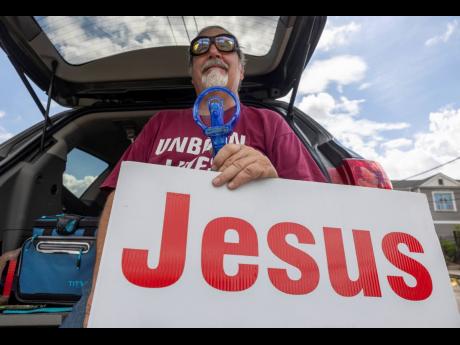Kristen Gyles | The church and public policy
I have watched with eager anticipation the pitch ball game of insults being hurled across social media following last week’s US Supreme Court overturning of the Roe vs Wade ruling. Amid the angry demands of some women that “privileged, old, white men” grow their own wombs before chiming into the conversation, I noticed that the disagreement transcended the abortion debate. Church folk and some secular interest groups seem to always be at loggerheads with each other. Because I am optimistic and I like to see the good in people, I will assume, however, that they actually want to get along and just need a little help.
It should be obvious that if your comments are prefaced with “Shut up old, white man”, your interpretation of what ideas are logical, factual and reasonable are probably more a function of who espouses them than anything else. And therein lies the first barrier to the closing of the divide – the ugly intolerance of identity politics. You don’t want to engage privileged old men in your conversation but yet expect them to relate to your position and actively lobby for your interests. Interesting…
Further, when these privileged old men support your position, they are free to speak and engage and you no longer think they need to grow a womb. Interesting…
I followed with interest a story a few years back, about a Christian baker who refused to bake a wedding cake for a gay couple in Colorado. The gay couple thought they were being oppressed and discriminated against and instead of sourcing a cake from elsewhere, decided they had to stand up for their right to not be turned down by their baker of choice. So they sued him.
And just like that, the divide thickens. This was a classic case of self-sabotage for the LGBTQ+ community. That one lawsuit, which is now world renowned, has tainted the cause of the LGBTQ+ community by alienating even libertarian religious people who were inclined to support their rights. Why on earth would I lobby for your right to your preferred lifestyle when, in a bizarre plot twist, you are simply going to use those rights to extinguish mine? My private business is private, right?
On the other end, where church folk contribute to the divide is in an unwillingness, in some cases, to separate private business and personal conviction from public policy. Again and again, I have seen heated debates on matters ranging from abortion rights to gun control and right in the midst is always a pastor or church leader quoting scripture as the basis for their position on what the government should or should not do. One can hold a personal position on a matter without believing everyone has to be subjected to it.
In a society where we all have to live together with differing beliefs, law and public policy can’t be monopolised by any one group. We live in a world where people choose different pathways – some of which you will think are wrong and immoral. Let the people live their wrong and immoral lives, as long as they aren’t interfering with anyone else.
What happens when we take the trek down the steep and treacherous slope of church and state partnership? Let’s see.
Once upon a time, there was only one recognised church, and that church had one set of beliefs that everyone had to subscribe to. There were no denominations and no religious debates. There were also no parliamentarians or anything that actually resembled government as we now know it. Just one big mush, in which the head of the church indirectly controlled civil leadership. The law, therefore, became a carbon copy of the Bible, or some loony cuckoo interpretation thereof.
Apart from the obvious disregard for the rights of people to exercise any freedom of religion, that didn’t work because thousands of people were tortured and killed by the state for breaking what was essentially religious law.
This history is important to keep in mind today, because churches continue to seek full exercise over the minds of people – even people who have nothing to do with their dogma and doctrine.
MOST DEFINITIVE TOOLS
Religion is one of the most definitive tools that help people to delineate right from wrong. Religion will always have a strong impact on behaviour because religion is a high-stakes arena. Some practitioners of religion have 72 virgins working for and others have an ever-burning, unquenchable hellfire working to escape. So, religion is quite compelling. And that seems to explain the need for its practitioners to think it should be woven into everything.
However, churches have no business advising the government on what the law should look like if the only basis for their advice is their own religious and spiritual dogma. If the position can’t be argued outside of religion or doctrine, it probably has no place in parliament. The church does not have a monopoly on morality. In fact, through its early efforts to stamp out immorality by crushing out innocent lives, it has proven itself unworthy to dictate to the government what is moral.
So, when church folk argue against abortion by saying things like “Abortion is not ordained by God” and “God hates sin” they, too,thicken the divide. Non-Christians don’t care about what God hates and many aren’t even sure that there is a god who cares about the debate over abortion rights. That’s a hard pill to swallow but is a starting point if we’re all ever going to get along.
- Kristen Gyles is a free-thinking public affairs opinionator. Send feedback to kristengyles@gmail.com.

